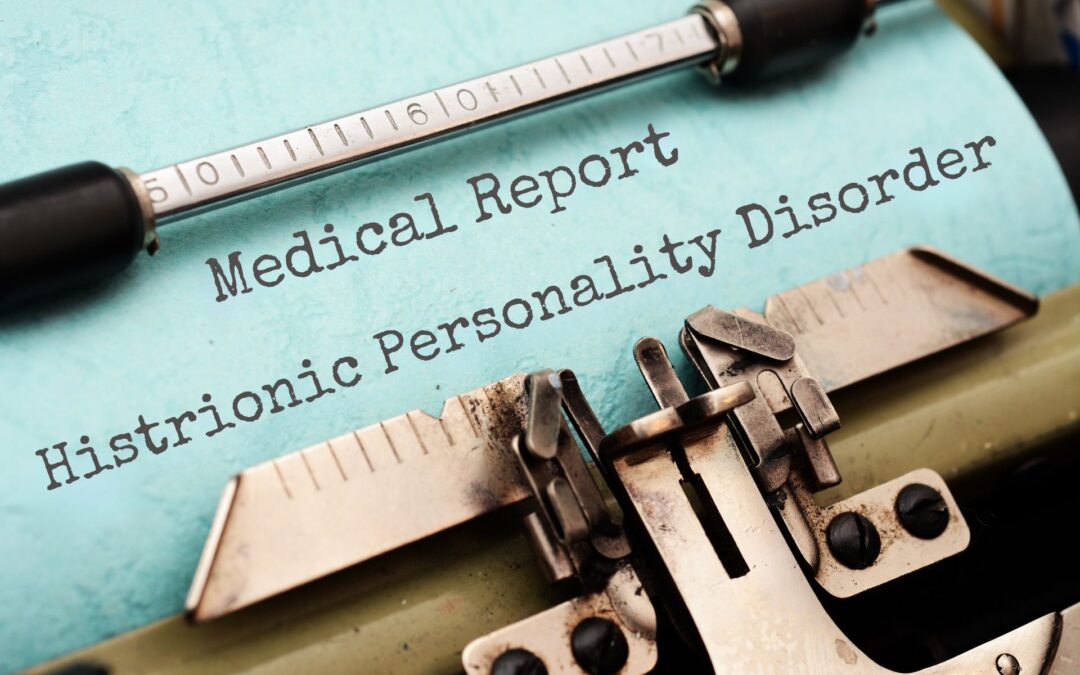If you Google “Histrionic Personality Disorder,” you’ll get a paragraph that sounds like it was written by a therapist who was mad that someone wore leopard print to a session. Histrionic comes from the word histrio, which is Latin for “actor.” Which means if you’ve ever been accused of being “dramatic,” congratulations, you might just be bilingual.
It’s described as a Cluster B personality disorder marked by excessive emotionality and attention-seeking behavior. In other words: theater kid energy, but make it maladaptive.
Clinical Criteria (Yes, Real Ones)
To qualify for an HPD diagnosis (per the DSM-5), a person must demonstrate at least five of the following:
- Discomfort when not the center of attention
- Inappropriately seductive or provocative behavior
- Rapidly shifting and shallow expression of emotions
- Consistently uses physical appearance to draw attention
- Speech that is impressionistic and lacking in detail
- Theatricality, exaggerated expression of emotion
- Easily influenced by others or by circumstances
- Considers relationships to be more intimate than they are
But no, this isn’t a reality TV casting call nor is it just “being dramatic.” It’s a pattern of emotional chaos that disrupts jobs, relationships, and functioning. Except it’s often dismissed as “personality” rather than personality disorder.
Why It Goes Undiagnosed
1. It’s Gendered
HPD is a diagnosis that has historically been slapped on women, especially women who were loud, wore too much makeup, or cried in public. Men are often socially forbidden to emotionally stand out at all, so men with this disorder have to do a lot more masking.
Many clinicians hesitate to diagnose it at all. And those who might qualify? Often dismissed as “overly sensitive,” “attention seeking,” or “just like that.”
2. It’s Misread as Something Else
HPD overlaps with:
- BPD (but with less self-harm)
- Bipolar (but without the mood cycles)
- Trauma responses (but performative)
So clinicians end up treating the anxiety, the chaos, or the fallout; but not the actual underlying disorder.
3. Society Rewards It (Until It Doesn’t)
Act bubbly, flirty, emotional, and “fun”? People love you, until they don’t. Until your needs become “too much,” your stories “too exaggerated,” your idea of vulnerability “too much sexual disclosure.” Then they ghost you.
What It Feels Like
Imagine you have a disease that causes you to disappear when no one is looking at you. Now imagine the only cure is to fill the room with noise, sparkle, drama, tears, cleavage, vulnerability, whatever gets you seen.
It’s not vanity. It’s terror. And under the surface? A lot of shame. And under that? A child who thinks they only deserve love if they put on a good enough show. HPD is a coping strategy in disguise. A way to survive when deeper wounds were never seen or validated. When parents loved you more when you were “on.” When sadness got ignored unless it was entertaining.
Also, because people with HPD often end up hurt, alone, and confused about why everyone leaves, even though they were trying so hard to be lovable.
In Conclusion
Histrionic Personality Disorder is real. It’s messy. It’s loud. It’s often hilarious and heartbreaking at the same time. And it deserves attention, literally. So let’s stop confusing performance with connection. And maybe let’s invite HPD out of the diagnostic shadows. But not center stage

